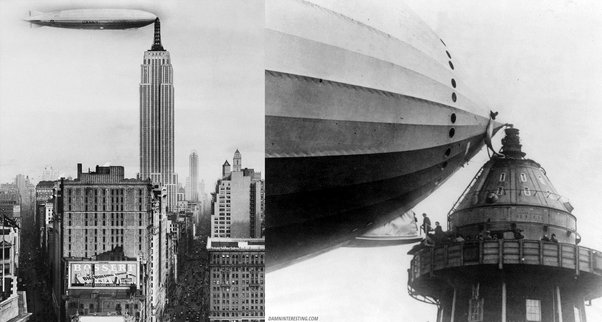For me it is the fact that our blood contains iron. I earlier used to believe the word stood for some ‘organic element’ since I couldn’t accept we had metal flowing through our supposed carbon-based bodies, till I realized that is where the taste and smell of blood comes from.
There is about 8.1 billion people in the world. Assuming romantic cliches to be true and that we all have exactly one soulmate out there, we would have a very hard time sifting them out. If you were to use exactly one second at meeting a person it would take you 257 years to meet everyone alive on earth at this moment, which due to human life span being significantly shorter and the influx of new people makes the task essentially impossible without a spoonful of luck. Moral of the story: If you believe you have found your soul mate, be extra kind to them today.
I mean, you should be extra kind to most people most of the time. Comunism begins at home.
it would take you 257 years to meet everyone alive on earth at this moment
Sounds like a terrible sorting algorithm /jk
Soul mates are made, not found. You get with someone compatible to you, and through the sharing of experiences and affection, if nothing goes excessively wrong, they become unique for you.
Definitely agree and beautifully put :)
Soul mates are made, not found. You get with someone compatible to you
That catch is, you need to find that someone in the first place, and that takes a bit of looking around. So in effect, soul mates are found.
You find a partner, who then MAY become a soul mate
If you were to use exactly one second at meeting a person it would take you 257 years to meet everyone alive on earth at this moment
Well I don’t need to meet everybody. There’s no need to meet anyone who doesn’t match my sexual preferences, so that’s half right there. Then we can also cut everyone who’s sexual preferences I don’t meet, as well as anyone outside of a given age range (most of the people on earth are much younger than me and would be inappropriate for me to date). We can probably get that down to about 50-60 years. (At one second per person).
The thought experiment was just an attempt to show how hard it is to wrap our minds around big numbers. Even a tangible number such as the amount of people in the world.
There are only 24 episodes of the initial run of The Jetsons and only 25 of Scooby Doo. They got aired as reruns for decades before more episodes were made. There are only 15 episodes of Mr. Bean.
This one startled me.

There’s a giant ball of extremely hot plasma in the sky and we aren’t supposed to look at it. What is it hiding? Surely if someone managed to look at it long enough, they would see the truth!
I’ve seen some of its secrets during the eclipse. It’s an angry, writhing tentacled thing. Be thankful it’s so far away.
Time relativity always boggles my brain, I accept the fact but I find crazy that if I strap my twin and his atomic clock to a rocket and send them out to the stratosphere at the speed of light, when they return he’ll be younger than me and his clock will be running behind mine. Crazy
Please dont do that
Let’s stick with the iron in your hemoglobin for some more weirdness. The body knows iron is hard to uptake, so when you bleed a lot under your skin and get a bruise, the body re-uptakes everything it can. Those color changes as the bruise goes away is part of the synthesis of compounds to get the good stuff back into the body, and send the rest away as waste.
In the other direction, coronaviruses can denature the iron from your hemoglobin. So some covid patients end up with terrible oxygen levels because the virus is dumping iron product in the blood, no longer able to take in oxygen. I am a paramedic and didn’t believe this second one either, but on researching it explained to me why these patients were having so much trouble breathing on low concentration oxygen… the oxygen was there, but the transport system had lost the ability to carry it.
Please tell us more or other things!
Planets and stars and galaxies are there. You can see them because they’re right over there. Like, the moon is a big fucking rock flying around the earth. Jupiter is even bigger. I see it through a telescope and think “wow that’s pretty,” but every once in a while I let it hit me that I’m looking at an unimaginably large ball of gas, and it’s, like, over there. Same as the building across the street, just a bit farther.
The stars, too. Bit farther than Jupiter, even, but they’re right there. I can point at one and say “look at that pretty star” and right now, a long distance away, it’s just a giant ball of plasma and our sun is just another point of light in its sky. And then I think about if there’s life around those stars, and if our star captivates Albireoans the same way their star captivates me.
And then I think about those distant galaxies, the ones we send multi-billion dollar telescopes up to space to take pictures of. It’s over there too, just a bit farther than any of the balls of plasma visible to our eyes. Do the people living in those galaxies point their telescopes at us and marvel at how distant we are? Do they point their telescopes in the opposite direction and see galaxies another universe away from us? Are there infinite distant galaxies?
Anyway I should get back to work so I can make rent this month
If I point my finger at one of those galaxies, there’s more gas and shit between us within a hundred miles of me than there is in the rest of the space between us combined
I mean, you may think it’s a long way down the road to the chemist’s, but that’s just peanuts to space.
What’s even more fascinating is that most of the stars we see in the sky are afterimages of primitive stars that died out long ago yet they shine as bright as the stars alive today
That doesn’t seem right. The galaxy is only 100,000 light years across (give or take) and the life span of stars is measured in billions of years.
Most of the stars we see are in our galaxy, so at most, we are seeing them as they were 100,000 years ago, which means that the vast majority of them will still be around, and looking much the same as they did 100,000 years ago.
I seem to have made a mistake then. Thank you for correcting it.
Thinking about it further, if we’re talking about stars that we can see with telescopes, Hubble, James Webb etc, then you’re on the money. Stars in remote galaxies far outnumber the ones in our galaxy and show us glimpses of the early stages of the universe. And many of those stars are long gone
Everything is illegal in the DPRK except if you are the current Supreme Leader, in which case everything is legal.
This is obviously bullshit. You’re right to not believe it.
deleted by creator
Their bodies produce chemicals that cause them to forget how bad childbirth was.
Quantum superpositioning. Schrödinger was right, it’s absolutely ridiculous and the cat can’t be alive and dead at the same time, box or not.
The problem is it provably does work that way, or at least in a way that is indistinguishable from it, ridiculous or not, and we don’t really know why. We’ve learnt many of the rules, managed to trap particles in superimposed states, even discovered that plants take advantage of it to transport energy more efficiently, and it’s just a thing that happens, an apparently fundamental rule of existence. And it doesn’t make any fucking sense.
deleted by creator
That bomb detecting thing is absolutely crazy, I think it’s one of those things most people have heard of but consigned to the bin of things that couldn’t possibly be true
It makes a lot more sense if you stop believing in the fiction of objects. There are no objects. Particles are a fiction, waves are a fiction. There is a single process, that we call the universe, and every single thing we refer to is a portion of that process from a subjective perspective. Once you give up on objects the idea that a process can be observed to produce subjective experiences that appear to violate expectations of object-oriented conceptual frameworks becomes less difficult to grasp.
There’s about 25 blimps in the world, and only 40-50 pilots.
doesn’t really fit the thread, but i was surprised when i learned that the empire state building has a blimp docking station

They really thought blimps were gonna be a thing.
They should have been
The speed of advancement from the industrial revolution to present.
The relatively short time humanity has been around
The universe is finite but expanding
The Monty Hall problem
The absolute scale of devastation created by humanity
The speed of advancement from the industrial revolution to present.
This one makes Fermi’s Paradox far more confusing and terrifying to me. The time it took to go from agriculture to the steam engine is nothing compared to the age of the universe, absolutely nothing, and from the steam engine to modern technology is fuck ton nothing.
An intelligent species could go from stone age technology to nuclear weapons in the blink of an eye.
And that’s just life as we understand it. We have no idea if we’re the equivalent of Flatland in a higher spatial dimension or something. There could be stars with entire civilizations of plasma-based intelligent life churning inside of them. There could be intelligent civilizations lurking in each and every single subatomic particle.
It’s possible no matter how far out or far in we look, we just keep finding more universe, more space for something to inhabit, forever…
As they said on
 , if we look everywhere and we’re the only intelligent species anywhere in this universe … well that would be weirder than if life is hiding all over the universe.
, if we look everywhere and we’re the only intelligent species anywhere in this universe … well that would be weirder than if life is hiding all over the universe.
Speaking as someone who grew up in the 1980s…
Micro-SD cards almost don’t make sense to me. I’m not saying I don’t believe in them, because of course I have a few of them. Obviously they exist and they work. But. They’re the size of a fingernail and can hold billions of characters of data. I uwve a camera that ive put a 128 GB microSD card in. A quick tap on the calculator tells me that’s over 91,000 3.5" floppy disks. Assuming they’re 3mm thick, that’s a stack of disks 273 meters tall. But this card is so tiny that I have to be careful not to lose it.
What’s a floppy disk?
That’s just another name for the save icon.
I saw 1tb microsd cards for sale at the shops the other day and had a bit of a ‘what the fuck…’ moment
I remember my parents talking about some thing or other in star trek that would be impossible because you’d need “terabytes of storage, and that’s probably not possible”. And now you can go buy 1 tb of storage and lose it in your couch cushions.
Queuing theory can have some fun surprises.
Suppose a small bank has only one teller. Customers take an average of 10 minutes to serve and they arrive at the rate of 5.8 per hour. With only one teller, customers will have to wait nearly five hours on average before they are served. If you add a second teller the average wait becomes 3 minutes.
Can you elaborate on the math here? (I believe you, I just want to understand the simulation parameters better).
deleted by creator
Aren’t they arriving slightly slower than can be served, according to these numbers:
If one customer takes 10 minutes to serve, you can serve 6 customers in an hour
and you get 5.8 customers every hour, which is less than 6
So you serve 6 customers, meaning you have a leftover capacity of 0.2 per hour or 1 extra customer every 5 hours
Maybe the numbers are switched over or I am misunderstanding something
Edit: nevermind, read the link in the thread and realised I treated the average as the actual serving time and I’m guessing that’s what makes it non intuitive. I’m still not entirely clear on how it works.
deleted by creator
They’re arriving slower than they can be processed. So the line shrinks slowly it there’s a line.
deleted by creator
Not OP, but this website should explain everything.
If you get 23 people in a room the odds of two of them sharing a birthday are 50%
The birthday paradox is a veridical paradox: it seems wrong at first glance but is, in fact, true. While it may seem surprising that only 23 individuals are required to reach a 50% probability of a shared birthday, this result is made more intuitive by considering that the birthday comparisons will be made between every possible pair of individuals. With 23 individuals, there are (23 × 22)/2 = 253 pairs to consider, far more than half the number of days in a year.
it’s not part of the paradox, but there are also days when people tend to have more sex
like new years, valentines, christmas etc. (in the west at least)
so you tend to get more people born 9 months after those daysIn high school my graduating class was 38. The one before us was 21, the one after 18.
Coincidently there was a massive blizzard that snowed everybody into their house for a week about 9 months before my birthday.
Here’s one: Iron doesn’t have a smell. It acts as a catalyst in the reaction of bodily fluids or skin oils, which is why you can’t smell coins after washing them
[This comment has been deleted by an automated system]



















